Hattie McDaniel, Madeleine Albright, Molly Brown on Colorado list of influential women
Go West, young man.
Add two letters to the famous four-word phrase often attributed to newspaper editor Horace Greeley, and it takes on a meaning far beyond that of the Manifest Destiny.
Go West, young woman.
As women fought for suffrage across the country, the pioneers who forged westward in the 19th century were also pioneers of a different kind.
Two Western states were decades ahead of the rest of the United States in granting women the right to vote. Wyoming's Legislature was first in 1869, followed by Colorado in 1893 – making the Centennial State the first state to grant women suffrage by popular vote.
“If Colorado goes for woman suffrage, you may count on a landslide in that direction throughout the West,” said famous suffragette Ellis Meredith, known as the "Susan B. Anthony of Colorado."
She wasn't wrong.
After Colorado, other states followed suit. But it would be nearly three decades before the rest of the country ratified women's suffrage.
This year, to commemorate the 100th anniversary of the 19th Amendment, when American women won the right to vote, the USA TODAY Network is naming 10 women from every state, plus the District of Columbia, as “Women of the Century.” These women have made significant contributions to their communities, states and country with documented achievements in areas like arts and literature, business, civil rights, education, entertainment, law, media, nonprofits and philanthropy, politics, science and medicine, and sports. To be eligible for these lists, the women had to have been alive between 1920 and 2020.
Are you registered to vote? Take the first step to making sure your vote counts.
These women are pioneers – pioneers in their fields, pioneers championing the rights of other women, pioneers in Colorado's history.
Choosing just 10 women for this honor was an incredibly difficult task in a state where the strength and spirit of the West run deep.
Even though not on this list, we are grateful to the contributions women in our past made to pave the way for future generations. Women like Florence Sabin, Loretta Ford and Mary Florence Lathrop made the fields of medicine and law more accessible.
And just as we look back, we also look to the future. We are confident that some women who did not make this year's list will continue to pioneer in their fields and be selected as women of the next century.
These are women like Katie Hnida and Susan Helms.
Hnida, who was the first woman to score in a Division I college football game and has been a champion for women's rights beginning long before the #MeToo movement.
Helms, a pioneer in the space industry, holds the world record for the longest space walk. She's now a consultant who advocates for female voices at the highest levels of American business and government.
There are innumerable inspiring women to recognize in Colorado. Our final list is composed of women who went West and manifested their own destiny.
Who is your Woman of the Century? Did we miss a woman you think should be on our list? We’d like to hear from you.
Hattie McDaniel
First African American to win an Oscar
(1895-1952)

Despite segregation laws that prevented her from attending the film’s premiere, Hattie McDaniel was the first African American to win an Oscar, being honored for her supporting role as Mammy in 1939’s “Gone With the Wind.”
McDaniel and her family first settled in Fort Collins before moving to Denver, where she spent the majority of her youth. After a famous rendition of “Convict Joe” at her school, McDaniel left high school in 1910 to join her family’s carnival company, touring small towns in Colorado, Kansas and Nebraska and dedicating her time fully to entertainment.
In 1914, McDaniel and her sister Etta Goff launched an all-female “blackface” minstrel show. In the early shows, McDaniel developed a trademark character, “Mammy,” who defied racial and gender stereotypes through comedy.
In 1920, McDaniel became one of the first African American women to perform on radio when she got her first radio job at Denver’s radio station KOA.
McDaniel went on to appear in more than 300 films in her career in theater, movies, radio and TV. In 1947, she became the first African American to star in a weekly radio program aimed at a general audience, on “The Beulah Show.”
She shared her success by donating to the NAACP and established scholarships for her sorority, Sigma Gamma Rho. She was inducted into the Colorado Women's Hall of Fame in 2010.
Temple Grandin
World-renowned professor of animal science, autism advocate
(1947- )

Temple Grandin is a world-renowned professor of animal science at Colorado State University and an advocate for people with autism, which she has.
Her research and insights on animal behavior have led to widespread changes in the humane treatment of livestock on their way to slaughter. Half of the cattle in the United States and Canada are handled in facilities that she designed.
Grandin is the author of numerous books and articles on animal science and autism. She participates in seminars and conferences on autism around the world.
She famously describes herself as thinking in pictures, a trait of her autism that helps her to connect with animals. She has long advocated that recognizing "specialized thinking" in children and accommodating it in their education will help them thrive.
She has been inducted into the Colorado Women’s Hall of Fame and the National Women’s Hall of Fame. She is a member of the American Academy of Arts and Sciences.
Grandin was the subject of an Emmy Award-winning movie on HBO. In 2010, she was named one of Time magazine’s 100 most influential people in the world.
Ellis Meredith
Political journalist
(1865-1955)

Widely known as the “Susan B. Anthony of Colorado,” Ellis Meredith was a well-known political journalist who would go on to lead Colorado’s suffrage movement.
As the daughter of the Rocky Mountain News’ managing editor, Meredith started writing for the Denver newspaper in the late 1800s, initially penning her column, “A Woman’s World” in 1889 before becoming the first Colorado woman to cover the state Legislature by 1894 – one year after Colorado women won the right to vote.
In 1904, she testified before the U.S. House of Representatives in favor of amending the Constitution to give women the right to vote across the county. Also starting that year, she served as the vice chair of the Democratic Party State Central Committee.
In 1910, Meredith became the first female elected official in Denver when she beat seven male opponents in the race to become the city’s election commissioner. She later left Colorado to work at the National Democratic Headquarters in Washington, D.C., in 1917. She was inducted into the Colorado Women's Hall of Fame in 2018.
Madeleine Albright
First female U.S. secretary of state
(1937- )

Madeleine Korbel Albright made history in 1997 when she was sworn in as the first female secretary of State, becoming the highest-ranking woman in the U.S. government at the time.
Nominated by President Bill Clinton, Albright reinforced America’s alliances, advocated for the expansion of NATO into the former Soviet bloc and promoted American trade, business and labor standards during her four-year tenure that ended with Clinton's second term.
She successfully pushed for military intervention through NATO during the humanitarian crisis in Kosovo in 1999, supported the ratification of the Kyoto Protocol on climate change and helped normalize U.S. relations with Vietnam.
Albright's family fled Communist Czechoslovakia in 1948. In 1949, they moved to Colorado, where her father, Josef Korbel, accepted a teaching position at the University of Denver.
She spent her teenage years in Denver attending the private Kent Denver School, where she founded the school's international relations club.
Albright worked as a librarian at the Denver Post. She attended Wellesley College and Columbia University in New York where she received her master's and doctorate degrees.
Albright became a U.S. citizen in 1957. She was inducted into the National Women's Hall of Fame in 1998 and the Colorado Women's Hall of Fame in 2010.
She is now a professor in the practice of diplomacy at Georgetown University School of Foreign Services and serves on many boards, including at the Aspen Institute.
Justina Ford
First African American female doctor in Denver
(1871-1952)
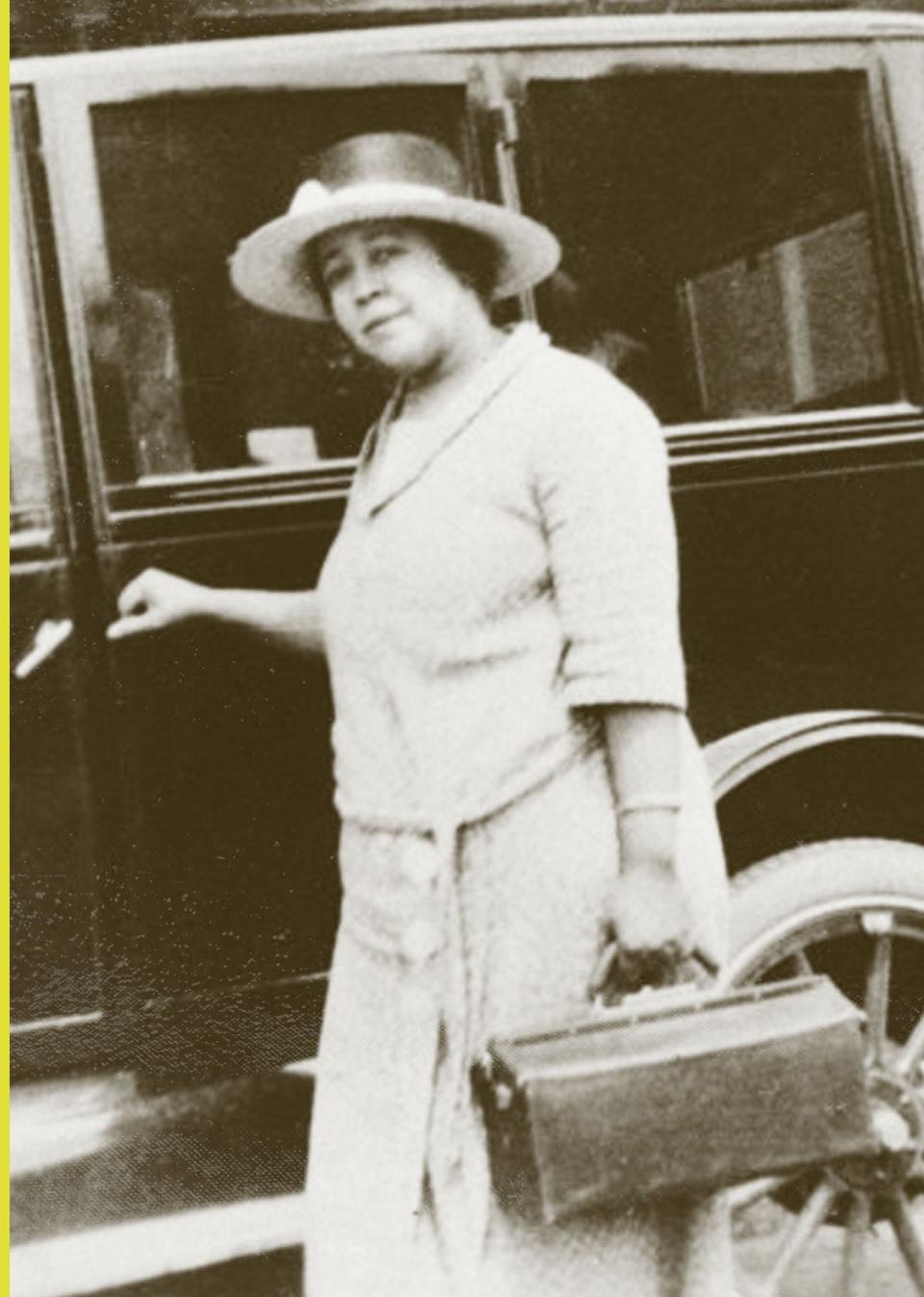
Justina Ford was the first licensed Black female doctor in Denver. She focused on obstetrics and pediatric care, delivering more than 7,000 babies in her 50-year career. She attended Hering Medical College in Chicago and practiced in a hospital there before moving to Denver in 1902, but medical societies in Colorado refused to admit her because she was Black.
When she went to pay for her medical license, the licensing examiner reportedly told her: “I’d feel dishonest taking a fee from you. You’ve got two strikes against you. First off, you’re a lady, and second, you’re colored.”
Since she couldn’t practice in hospitals, Ford offered prenatal care and delivered babies out of her two-story brick house in Denver. Her patients were almost exclusively poor, and many were ethnic minorities or didn’t speak English. Ford readily accepted her $15 to $30 fee late or in the form of groceries or goods. When patients did pay cash, she often used the money to buy them coal or groceries.
People called Ford “the Baby Doctor,” and those whom Ford delivered considered themselves part of the “Justina Baby Club.” The Colorado Medical Society and Denver Medical Society admitted her in 1950, and she cared for patients at Denver General Hospital until two weeks before her death in 1952.
The Cosmopolitan Club gave Ford its Human Relations Award in 1951, and the Colorado and Denver medical societies honored her after her death with resolutions naming her "an outstanding figure in the development and furtherance of health."
Ford was inducted into the Colorado Women's Hall of Fame in 1985.
Mildred “Babe” Didrikson
Olympic gold medalist and accomplished multisport athlete
(1911-1956)
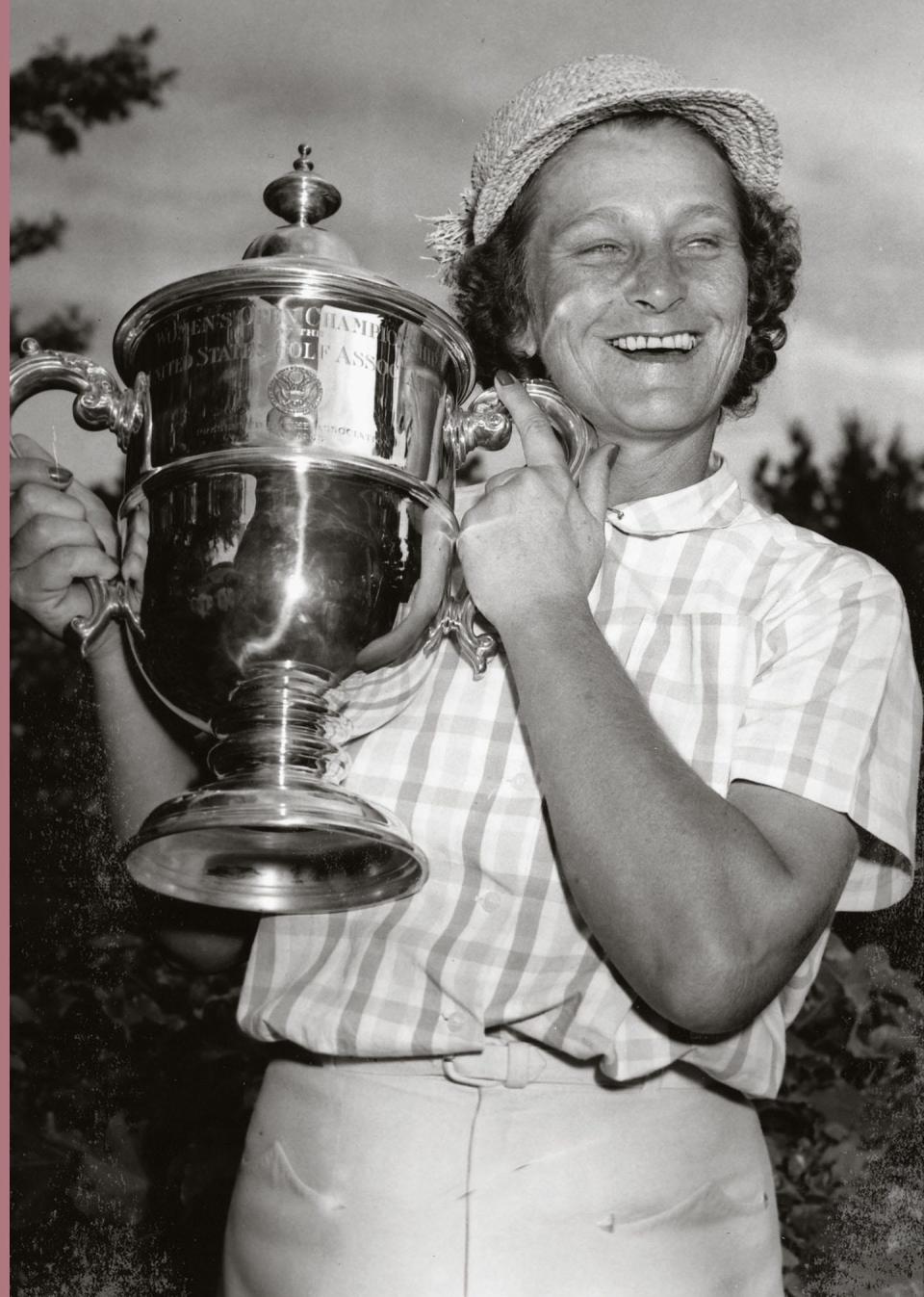
The nickname “Babe’’ stuck because of her home-run-hitting power in baseball, yet baseball wasn’t even close to Mildred Didrikson's best sport, an indication of just what an accomplished multisport athlete she was.
At a time when sports still were mainly reserved for men, Didrikson refused to conform to the ladylike image of female athletes. She excelled in volleyball, tennis, baseball, basketball and swimming.
Yet, eventually, the sports for which she became best known were track and field and golf.
Didrikson held American, Olympic or world records in five track and field events from 1930 to 1932. In the 1932 Olympics, she won two gold medals (80-meter hurdles and javelin) and a silver medal (high jump).
Her interests then turned increasingly to golf. She played her first golf tournament in 1934 and won 17 straight amateur tournaments from 1946 to 1947.
In 1938, she married professional wrestler George Zaharias of Pueblo, Colorado, and the couple moved to Denver in 1943.
She turned pro in 1947 and earned 35 career professional victories in golf, 10 of which were majors, including three U.S. Open titles. She won her third U.S. Open championship, by 12 strokes, while wearing a colostomy bag, and 14 weeks after undergoing major cancer surgery in 1954.
The disease claimed her life two years later, but not before she was named the Associated Press Female Athlete of the Year six times from 1932 to 1954 and Female Athlete of the Half Century in 1950. She also was one of the founders of the LPGA.
She was inducted into the National Women's Hall of Fame in 1976 and the Colorado Women's Hall of Fame in 2008.
Antoinette “Tony” Perry-Frueauff
Stage actress and director whose work inspired the creation of the Tony Awards
(1888-1946)
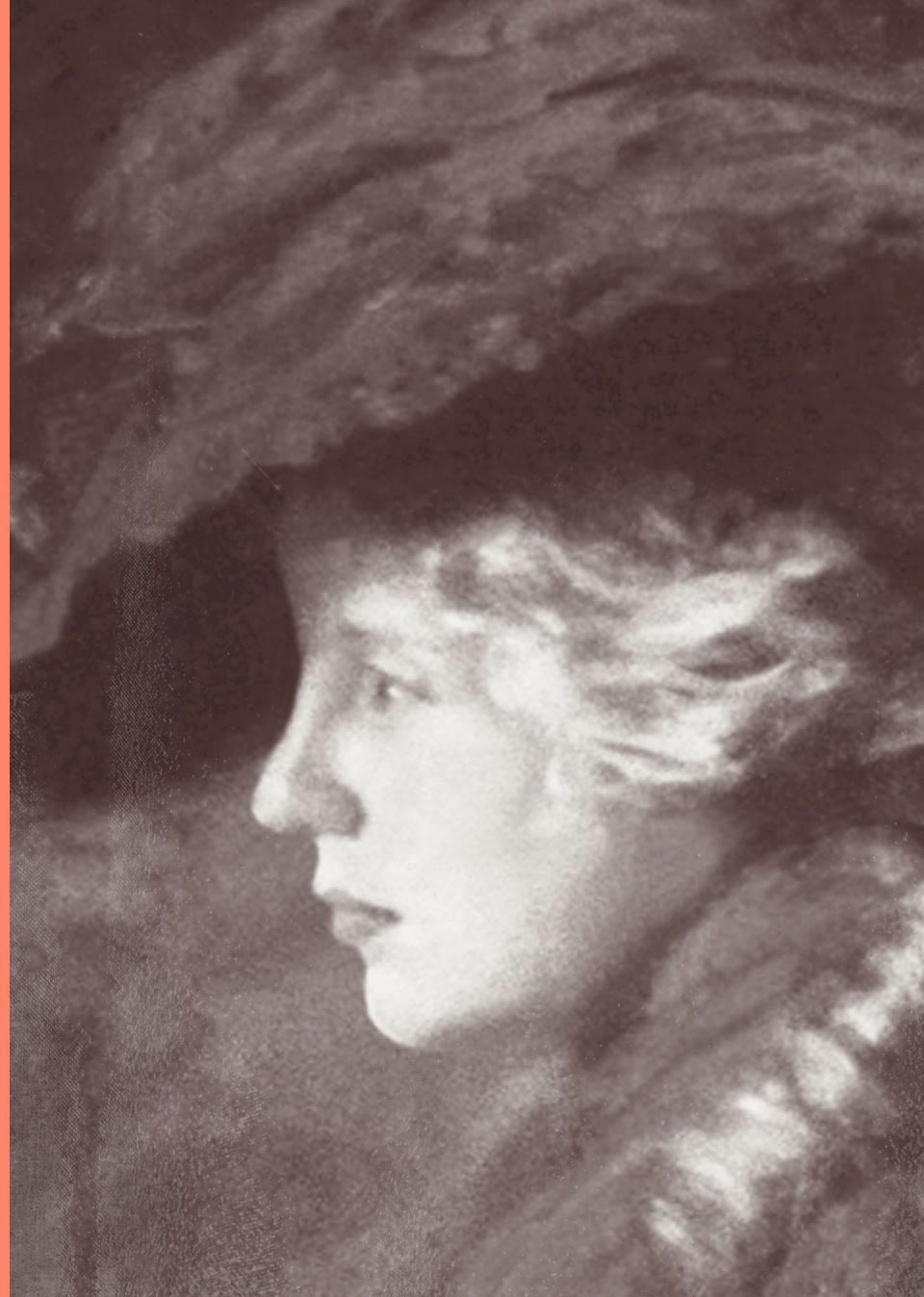
Antoinette Perry-Frueauff was a leading stage actress and director who opened doors for other women directors. Broadway’s award for excellence in theater, the Tony Award (officially the Antoinette Perry award), was established in 1947 by the American Theatre Wing, which she co-founded.
Perry-Frueauff was born and raised in Denver. As a child, she trained as a singer, and later performed many theater roles on stage. After a brief break from the industry to raise her children, Perry-Frueauff returned to the stage in the 1920s as a director, which was controversial for women at the time.
She directed 17 Broadway plays in 14 years, including "Harvey," which won a Pulitzer Prize.
During World War II, she held benefits to raise money for the war effort and coordinated entertainment in the U.S. and abroad for homesick troops. She also worked to open a drama school for veterans when they returned from the war.
One year after her death, the Tony Awards were founded to honor her accomplishments during her career. One of the highest honors in theater still bears her name more than 50 years after her death.
She was inducted into the Colorado Women's Hall of Fame in 2004.
Marilyn Van Derbur Atler
Former Miss America, author and motivational speaker
(1937- )
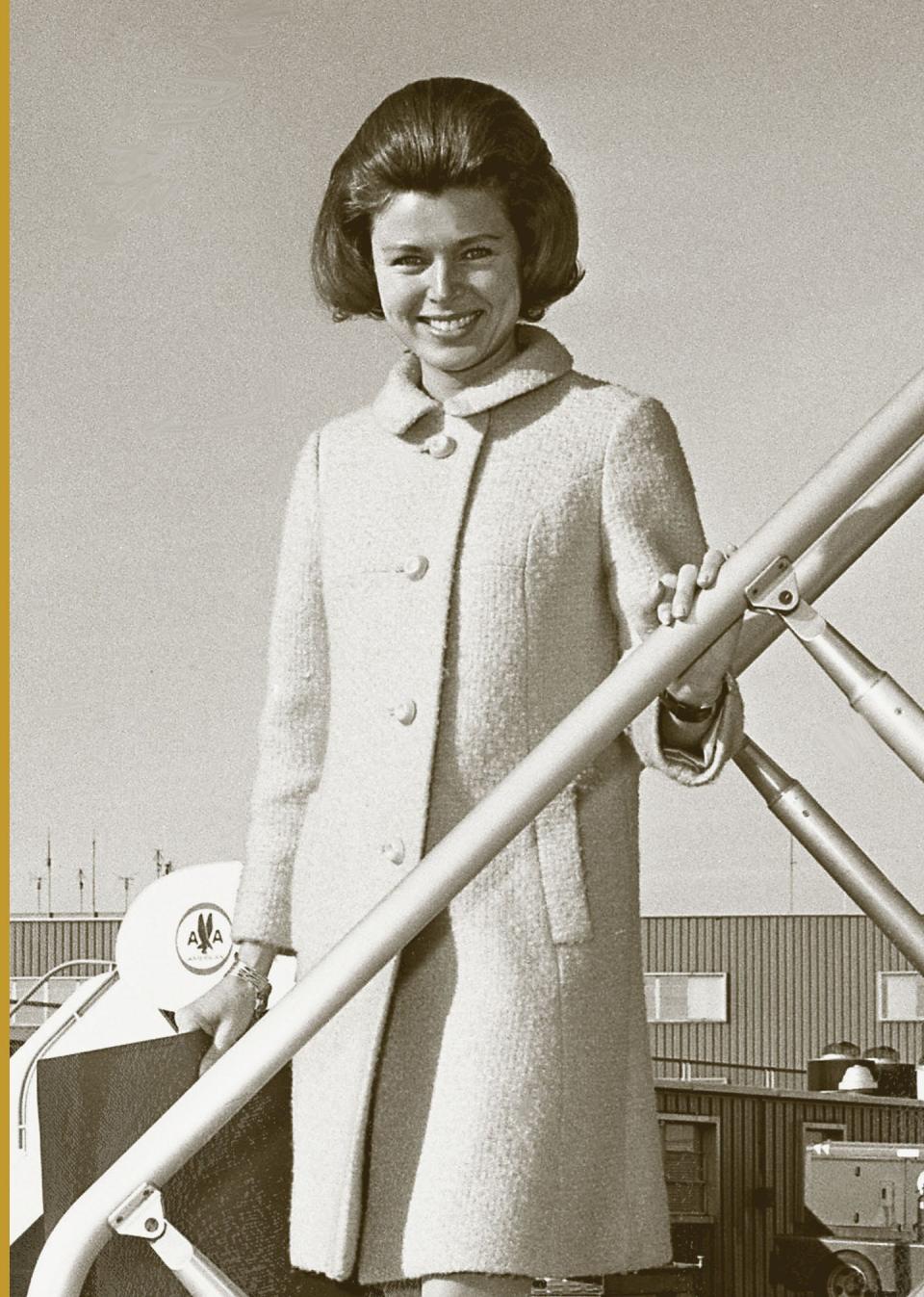
In just a matter of months in 1957, Van Derbur went from being a University of Colorado student to being crowned Miss America – a whirlwind experience that would quickly launch the Denver native’s successful career as a public speaker and television host.
The beauty queen, however, had a secret. In 1991, while announcing a large donation from her family to a child sex abuse research program at the University of Colorado-Denver, Van Derbur revealed she had survived years of childhood sexual abuse at the hands of her father.
Once Van Derbur’s revelation went public, she became the face of adult survivors of incest. In 1993, she co-founded two nonprofits dedicated to strengthening laws to protect adult survivors and stop the sexual abuse of children. Ten years later, her award-winning book, “Miss America By Day,” was published. It serves as both an account of her abuse and as a handbook for other survivors of sexual abuse.
Since that first admission in 1991, Van Derbur has dedicated her life to publicly raising awareness and understanding of the long-term effects of sexual abuse. She has spoken about her experiences in more than 500 cities and has answered tens of thousands of letters and emails from other survivors. She was inducted into the Colorado Women's Hall of Fame in 1996.
Lily Nie
Adoption advocate and founder of Chinese Children Adoption International
(1963- )
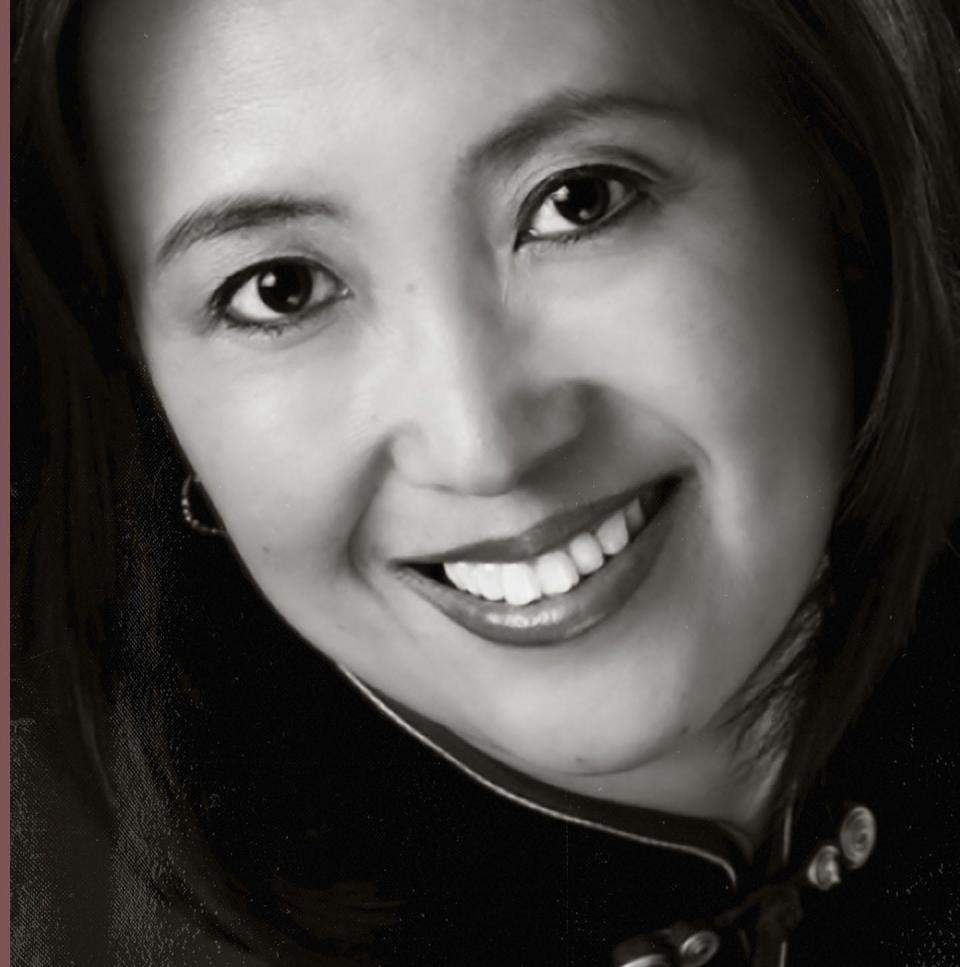
LilyNie, who was born in Yingkou, China, is an advocate for orphans in China and for the adoption of Chinese children, having created several organizations aimed at caring for abandoned and adopted children and helping connect them with families.
After earning her law degree from China’s Fushun University and becoming a business law attorney, Nie came to the United States in 1987 to join her fiance. Once in the United States, Nie met a family with four adopted children who first sparked her interest in helping abandoned children.
Nie, with her husband, moved to Colorado in 1988. Four years later, in 1992, China began allowing foreigners to adopt Chinese children. That change prompted Nie and her husband to found Chinese Children Adoption International. CCAI offers adoption services and, to date, has found homes in the United States for more than 8,000 abandoned Chinese children, most of them girls.
Nie went on to create the Chinese Children Charity Fund, which raises money to care for children in Chinese orphanages and helps train orphanage workers. Once China began allowing foster care, the charity created a training program for foster care parents and helps connect children in orphanages with foster families.
In 1996, Nie opened the Joyous Chinese Cultural School in Littleton. The school provides cultural support for adopted Chinese children and adults, including language education, dance programs and distance learning tools. Nie also helped create organizations that focus on emotional support for adopted children and their families, as well as a program that sponsors heritage tours to China.
Nie and her husband became U.S. citizens in 1999, and Nie was inducted into the Colorado Women's Hall of Fame in 2008.
Margaret “Molly” Brown
Civil rights advocate known posthumously as “The Unsinkable Molly Brown”
(1867-1932)
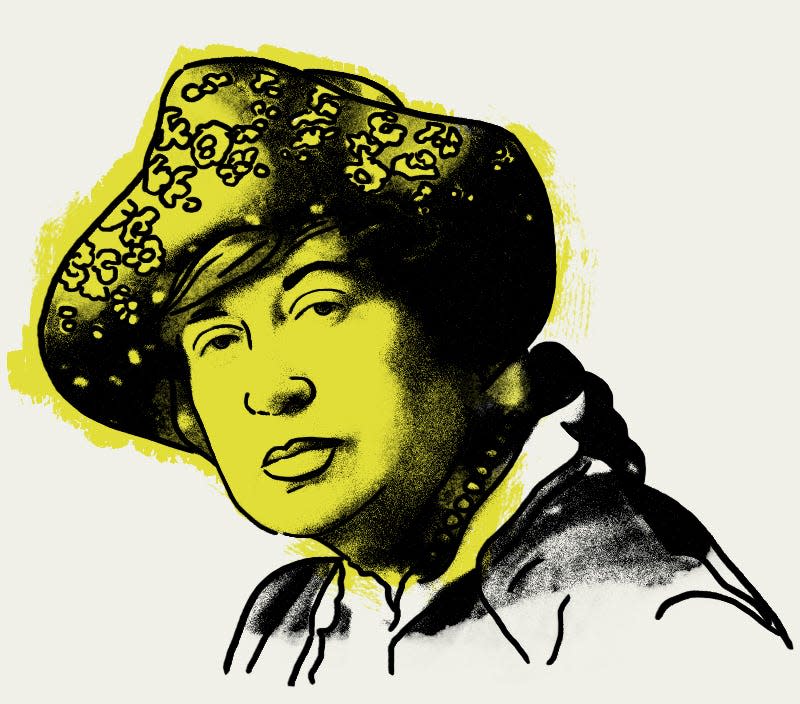
Margaret “Molly” Tobin Brown may have survived the sinking of the Titanic, but she’s also remembered for her lifetime of advocating for civil rights.
Brown married a miner and had two children in Leadville. She was involved in the early feminist movement there and helped establish the Colorado Chapter of the National American Women’s Suffrage Association. After building a home in Denver, Brown helped found the Denver Woman’s Club, part of a larger network that advocated for literacy, education, suffrage and human rights.
Brown was also involved in launching the first juvenile court in the country – which eventually became the basis of today’s juvenile system – and ran for public office. Brown’s fame developed after her efforts to assist Titanic survivors, and she used the platform to address her concerns about labor rights, women’s rights, education and literacy for children and historic preservation. Brown later worked with the American Committee for Devastated France during World War I.
Her legacy diverted into a fictional folk tale, which eventually became the Broadway play “The Unsinkable Molly Brown” and later adapted into a movie. She was inducted into the Colorado Women’s Hall of Fame in 1985.
More coverage
Women of the Century: They didn’t succeed despite adversity, but often because of it
50 states: Learn about notable women from every state
Who is your Woman of the Century?: Let us know
Recognizing women past and present: See all of our coverage
Special thanks to Colorado journalists and natives Jennifer Hefty and Erin Udell; Deborah Radman of the Colorado Women's Hall of Fame; William Wei of the University of Colorado; Michael Erickson of the Center for Colorado Women's History; and Patti Smith of Zonta Club.
Sources used in the Women of the Century list project include newspaper articles, state archives, historical websites, encyclopedias and other resources.
This article originally appeared on USA TODAY: Women of Century Colorado: First female Secretary of State on list

